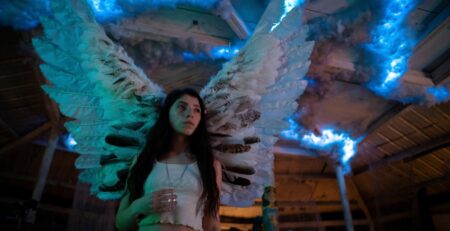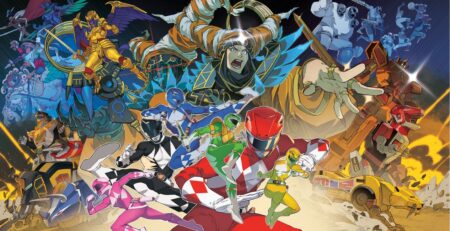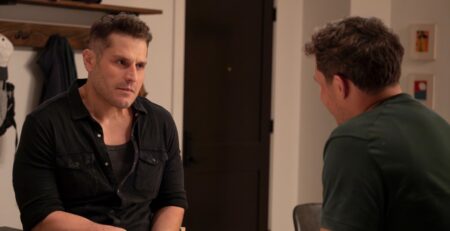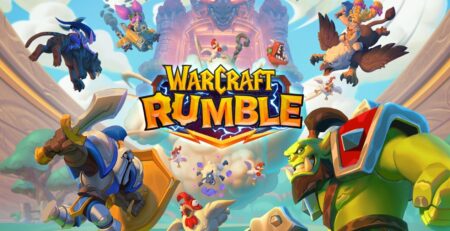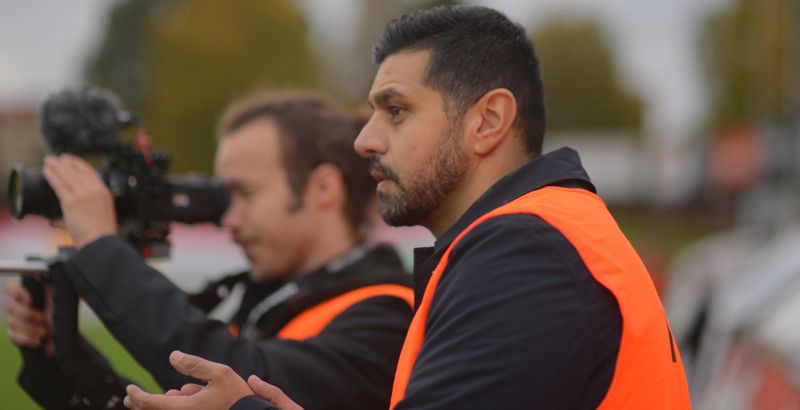
From the Denmark Euro win in 1992, to the miraculous Leicester City Premier League victory in 2016-17, or even the recent Morocco semifinal run in the 2022 World Cup, football has given us a plethora of amazing underdog stories throughout history. But you might not know about one of the most hopeful and inspiring in recent times: the rise of tiny Dalkurd FC from the seventh tier of Swedish football all the way to the Superettan, the second-highest league in the country. What makes this achievement even more special? Founded by Kurdish refugees, Dalkurd has become a de facto national team for Kurdistan, a country whose people have no state to call their own. The importance of this club as well as their incredible push to get to the Allsvenskan, the top tier of Swedish football, is told by director Kordo Doski in the documentary Allihopa: The Dalkurd Story.
When it comes to Kurdistan, we are used to hearing tales of loss and tragedy, so Allihopa immediately stands out because of how it portrays Kurds: as dreamers and winners.
“We’ve heard so much about Kurdish people, but everything we hear is always tragic, you know? The only positive news it seems like we got over the past few years was that they were our allies in the fight against ISIS, but that was quickly forgotten,” Kordo Doski told us in an interview before the world premiere of Allihopa: The Dalkurd Story at the 2023 Hot Docs film festival. “One of my main goals specifically, not just with this film, but in general, is to highlight Kurds and other communities in a positive light. That was ultimately my main goal for this film.”
You have to keep in mind that rising from the bottom of a football system all the way to the top is an incredibly difficult task which makes the Dalkurd story even more impressive. “What these guys did on a football field had never been done,” said Doski, a former football player himself. “One of the challenges was to shift the focus and keep it on everything that these guys have done for so many people while trying to integrate the Kurdish story. That was the balance. I went into this 100% knowing that we had to honor what these guys had done.”
Allihopa: The Dalkurd Story is a beautiful tale of the human spirit that will keep audiences, whether they are football fans or not, cheering from their seats. We spoke with director Kordo Doski about the goals of the film, the pressure of telling this story, and the challenges of earning the trust of an entire football team, among other themes. You can read the conversation below.
BUT WHY THO: Earning the trust of a team is not easy. Being able to feel welcomed in a locker room of such a tight group is not easy, so how did you handle this process of trust? How did you approach the players and the interviews?
KORDO DOSKI: The most important thing was setting that ground base with them before the cameras started rolling, actually getting to know who these people were, and what made them click. Spending some time with them off camera and actually just explaining to them what my goal was, what I was seeing from watching them, and just trying to find that understanding of who they were as people to find a way to make them their most authentic selves.
From a directing standpoint, it was almost like a rehearsal process. Opening up to them as much as possible and letting them just be and getting to know them before the cameras were turned on. I think that was the biggest thing. I think once they realized that we were there to support them and that we really cared about them, I think their whole approach to us and their expectations of us changed.
It was one day specifically. Without giving anything away, it was after a very tough loss. There was a practice we didn’t have to go to. It wasn’t a mandatory practice for the team either. But we showed up, we arrived in the same city at like four o’clock that morning, and we were at practice ready to go at like 9:00 AM and it took us about an hour to get there. I think that day specifically something changed because they knew we were there for the right reasons, and the way they looked at us changed that day. It really changed. They opened up, even the quietest guys who were kind of side-eyeing us before then, they changed and everybody was willing to be interviewed, everybody was willing to engage. And I think it’s because that they saw that we were there for the journey and that we were really impacted by what we were seeing, you know?
BUT WHY THO: An important part of the drama of the movie is the fact that they needed one win but they kept losing. During that timeframe, what were you thinking? Because as a director, I guess this situation is great because it creates more drama, but as a human, as a Kurd, you want them to win. So how did you handle this and was there ever a plan B? What would’ve happened if they won the first game and the drama was over?
KORDO DOSKI: Amazing. Yeah, you’re right. Well, even if they had won early on, they still would’ve been in the running for first or second place because of promotion. So the club that was currently tied with them or ahead of them was a storied Swedish club, an old club with so much history. So it was a two-team race up until that point. But I wasn’t sure how it was gonna unfold, and to your point, they used to joke around: “You’re so happy you’re getting all this drama!”, they said. But no! I was actually prepared for the other story!
I was really starting to get nervous, man. We started to think that it was our influence: are we taking them out of their rhythm? But there was just so much that was around these guys. In hindsight the way the games unfolded was great and it created so much tension, but during that time we were so locked in and I was so close to the guys that I just wanted them to win.
BUT WHY THO: Allihopa: The Dalkurd Story is your documentary debut. What challenges did you face transitioning from fiction to non-fiction?
KORDO DOSKI: It’s just a different beast. I think the challenge is not fully knowing what to expect. It was a really ambitious project not just because it was my first documentary, but because it was in Kurdish, Swedish, and English. And we didn’t have just one main character that we were following. The question was, how do you combine all these characters that are very different? They’re speaking three different languages. And that was it: the logistics standpoint of communication, of transcribing and translating all this stuff, and then cutting seamlessly in the film between these three languages while keeping the viewers still understanding.
BUT WHY THO: It’s been a while since the documentary was shot, what obstacles did you have between then and now to bring to light this film?
KORDO DOSKI: Pressure. A lot of pressure living up to their story. That was the biggest thing. For a while, there was a good version of the film where I felt like we’d done our job. But each time we stepped away for a little bit, we felt like we could have honored their story more.
What they had accomplished was bigger than what I had accomplished in terms of telling their story. So it was the fine-tuning that kept on going and the notes that we received and the fact that we never stopped. We just kept on going to the point where we’re like, do we feel that they are gonna be happy with this film now? Did this actually live up to what they accomplished? And we hope we did. We really fine-tuned and we listened and we turned every stone over to try to find the best version that we could.
BUT WHY THO: You had to work in a small timeframe. Just a handful of games. So how did you and your production team handle this daily quest to capture the lives of all these subjects?
KORDO DOSKI: Practices were huge for us. We had three games, but we were there for a long time and there was also a break in between these games. So being around their daily lives and daily practices, the amount of time and hours that we were able to be with these guys was really huge. Our cinematographer Andrew Lee had handled a lot of these sports locker rooms documentaries before so we leaned on him a lot in terms of setting the pace a little bit.
He was our wise guide. And everybody else just had a motor: José, Joan, everybody was able to put in 10, 15 hours a day, and we condensed a lot into a short period of time. But mind you, we were also there like two, or three months before setting this up. So the shoot was only for so many months, but the fact that we were there laying the groundwork and getting to know these guys and seeing how they spend their time, where they spend their time, and just trying to capture as much of that as possible.
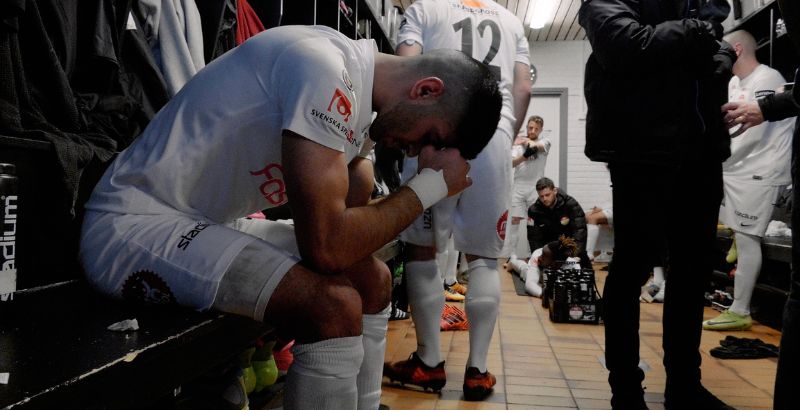
BWT: How did you go about recording the actual football matches? The actual editing can be tricky given the importance of giving energy to those football matches.
KORDO DOSKI: Yeah, that was tough. The home matches were a little bit easier because we had so many cameras set up. In addition to our main two guys, we had cameras strategically set up in certain areas. Behind the post, behind the net, around the corner kick area on both sides. And we also had a side cam that was zooming to the fans as well as trying to find the play-by-play cam. So we had a lot of options that we were able to use to cut back and forth. And then we also had access to the actual feed. We had as many as eight cameras set up for the home matches. For us, that was a big deal for this type of documentary. When we went away, we had fewer resources, but we were still able to set up about five or six cameras for away games. But that was it.
The key was strategically setting up cameras where the action was. So we knew on corner kicks there would be a lot so we had one by the post; we knew that there would be a lot going on behind the net, and just knowing who we were playing, understanding soccer enough to place the cameras in the right spot and then pray and see what happens at the end.
BUT WHY THO: You played football professionally, but where did that love for the sport come from? What are some of your favorite football players?
KORDO DOSKI: Family. It was Kurdish people and just the Middle East, I don’t think people understand how big soccer is in the Middle East. It is truly everything, you know? So I’ve had that in my blood.
As far as players, you’re influenced by your dad when you’re young. My father loved Brazil, so coming up, it was the Brazilian teams. I just appreciate the flair. As you get older, you start to form your own opinions. I love Zidane, I love Ronaldinho, I love Messi. As a team, I also love the Canadian team, but I have to say this, every time Mexico’s in the World Cup —I swear I’m not just saying this for you— I always support them because Mexico in the World Cup is different than Mexico in CONCACAF. There’s always a different energy when they are playing in the World Cup.
But I love artists on the field. I love people that think about the game differently. Some of these guys, the way they play the game it’s… they’re not just players. They’re doing something very different. They’re thinking outside the box. And I just love creative players. I love creative teams. I love the old Barcelona team. I love the old Ajax teams. I appreciate good football.
“Allihopa: The Dalkurd Story” had its World Premiere at Hot Docs 2023 where it screened as part of the World Showcase program.
Images courtesy of Beige Films.

